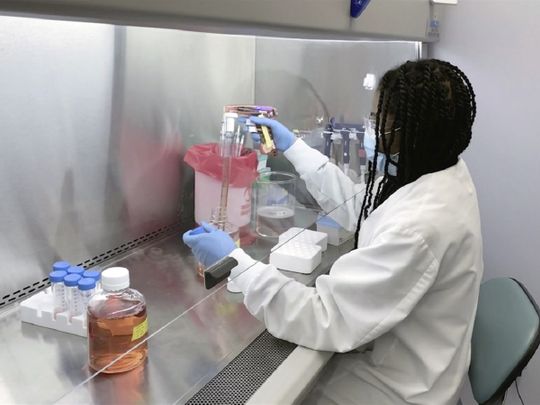
Regeneron Pharmaceuticals Inc said U.S. health regulators were doing a careful analysis of its experimental antibody cocktail to treat COVID-19 and that it was hopeful the drug could be authorized for emergency use in the country "soon".
The treatment, which was given to U.S. President Donald Trump during his COVID-19 infection, has been under review by the U.S. Food and Drug Administration since last month.
"We hope that it (review) will reach a successful conclusion. But we don't know the timeline," Regeneron Chief Executive Officer Leonard Schleifer said during a conference call to discuss the company's earnings.
The company has said that clinical trial data shows the drug reduced medical visits in patients with mild-to-moderate cases. The antibody treatment would be the first drug designed specifically to fight COVID-19 and could become a tool in the coronavirus pandemic that has killed more than one million people globally.
Antibody treatment for outpatients
Based on clinical trials, Regeneron expects emergency use authorisation could be granted for outpatients, a group that it believes would benefit the most from the drug. About 80,000 doses of the treatment could be ready by the end of this month, and 300,000 doses by the end of January, Regeneron said.
The company has been working to scale up production of the drug, and raised its forecast for 2020 research and development expenses to between $2.75 billion and $2.82 billion, from its prior forecast of $2.61 billion and $2.73 billion. It would also result in higher expenses in the first half of 2021.
Safety signal
The company said last week that COVID-19 patients receiving advanced care in the hospital are no longer being enrolled in clinical trials after a data panel signaled a potential safety signal and an unfavorable risk-benefit profile. The company still does not know whether the patients in the paused trial had received a placebo or the experimental drug, executives said on the call.
In the third quarter, Regeneron's quarterly profit surged past analysts' estimates, as easing lockdowns allowed patients to resume visits to doctor's offices and boosted sales of its blockbuster eye drug Eylea. Sales of Eylea rose to $2.10 billion in the third quarter, topping estimates of $1.75 billion. Excluding items, Regeneron earned $8.36 per share, beating a consensus estimate of $7.14.








